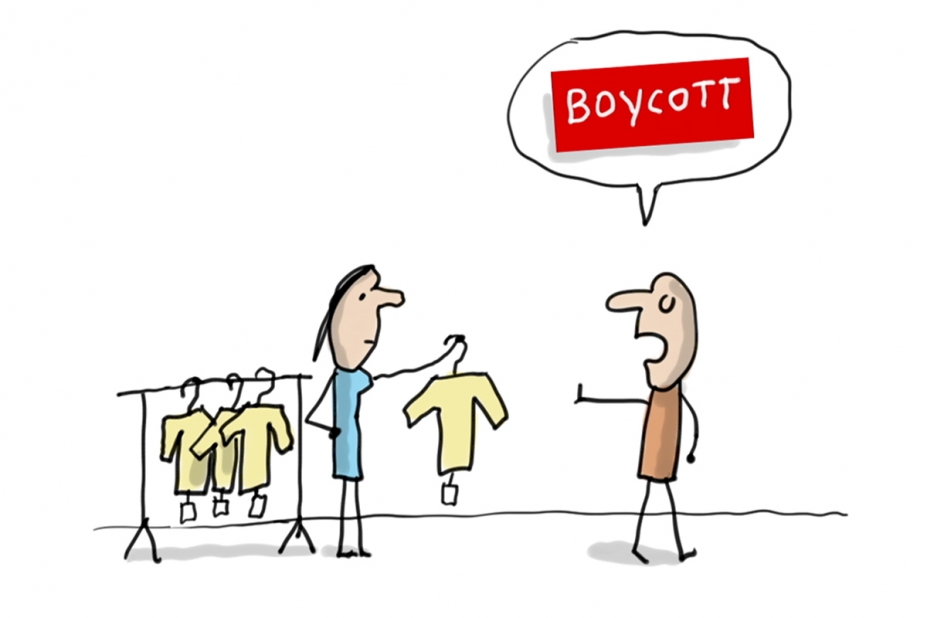It’s deciding to refuse to buy a certain product: clothing items, food…
Or to systematically reject a brand or company.
It can also be refusing to take part in a meeting, a competition or elections.
Or on a larger scale, to stop all relations with a country as a protest.
But why use a boycott?
To put pressure on a person, a company or a country, for them to change their behavior or their policy.
The expression comes from Charles Cunningham Boycott, a 19th-century British landowner.
The farmers working his land accused him of mistreatment. They revolted and refused to give him anything. The man ended up ruined.
Today, a company causing pollution could be the target of a boycott for ecological reasons.





 Retour
Retour